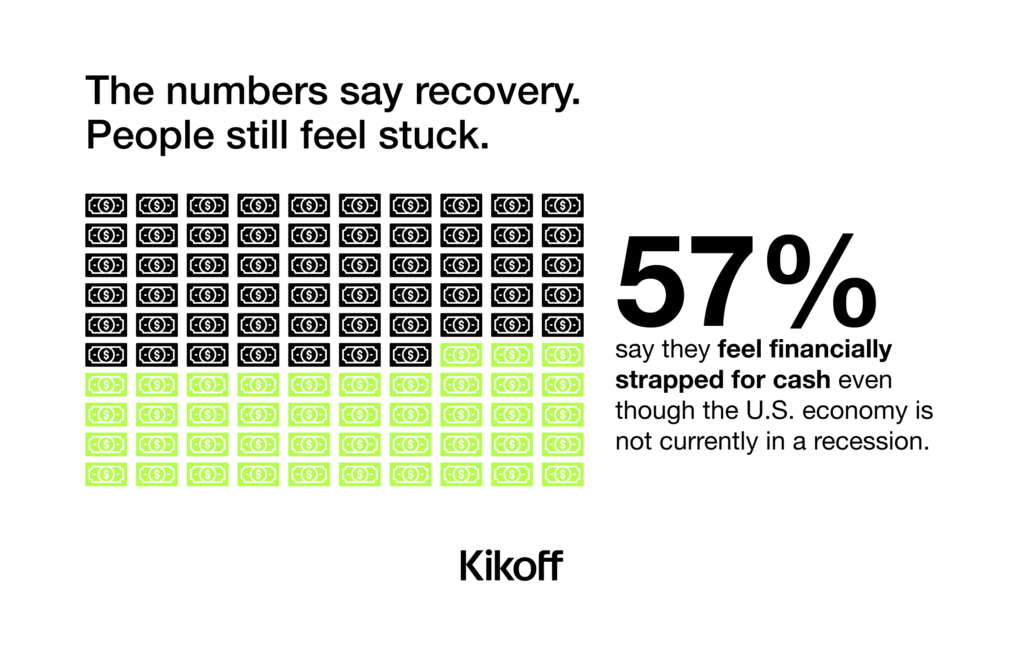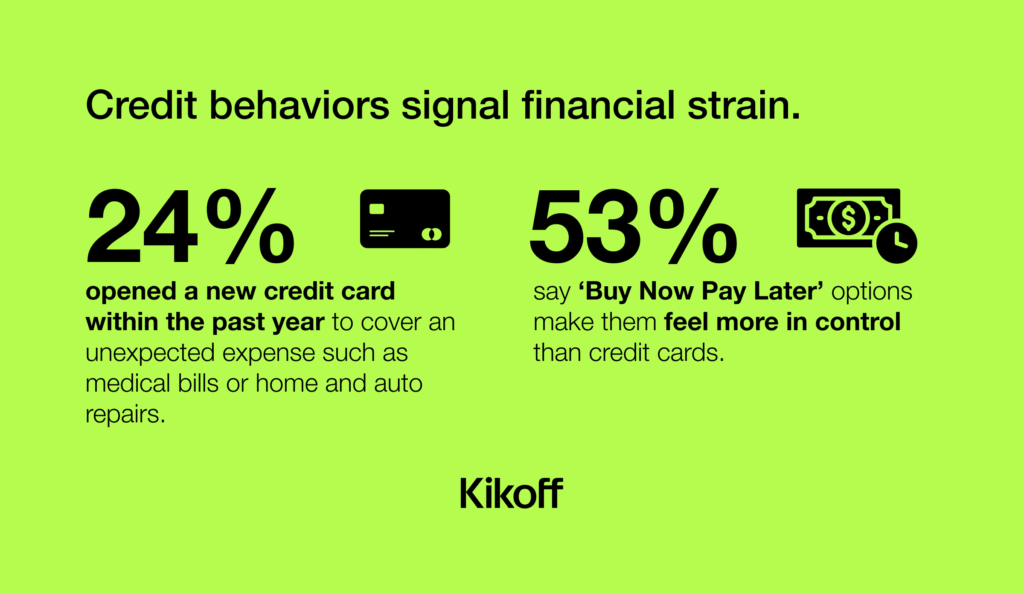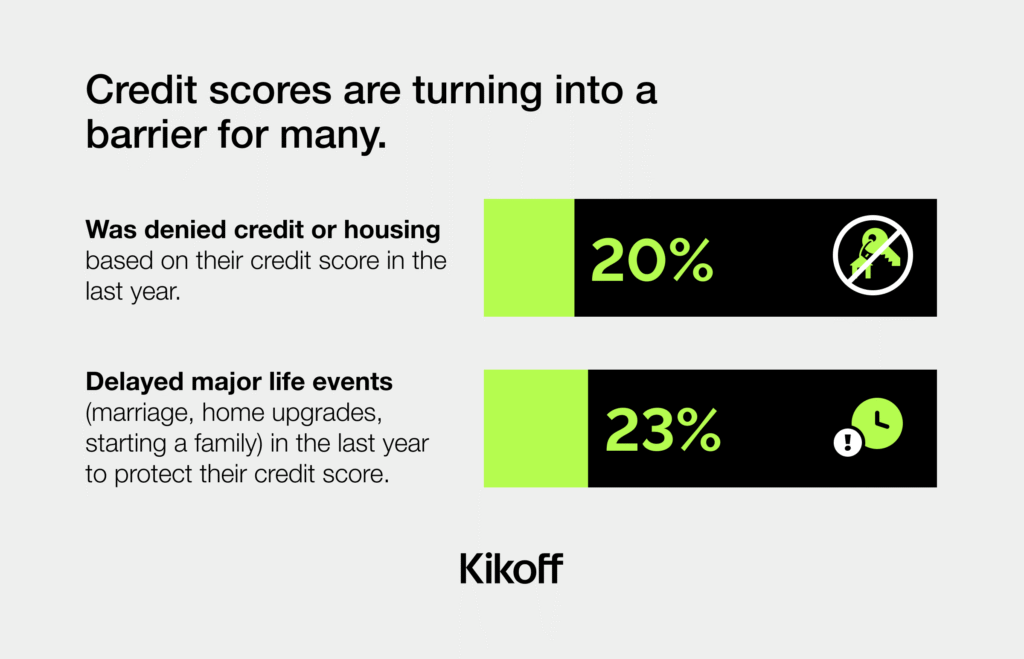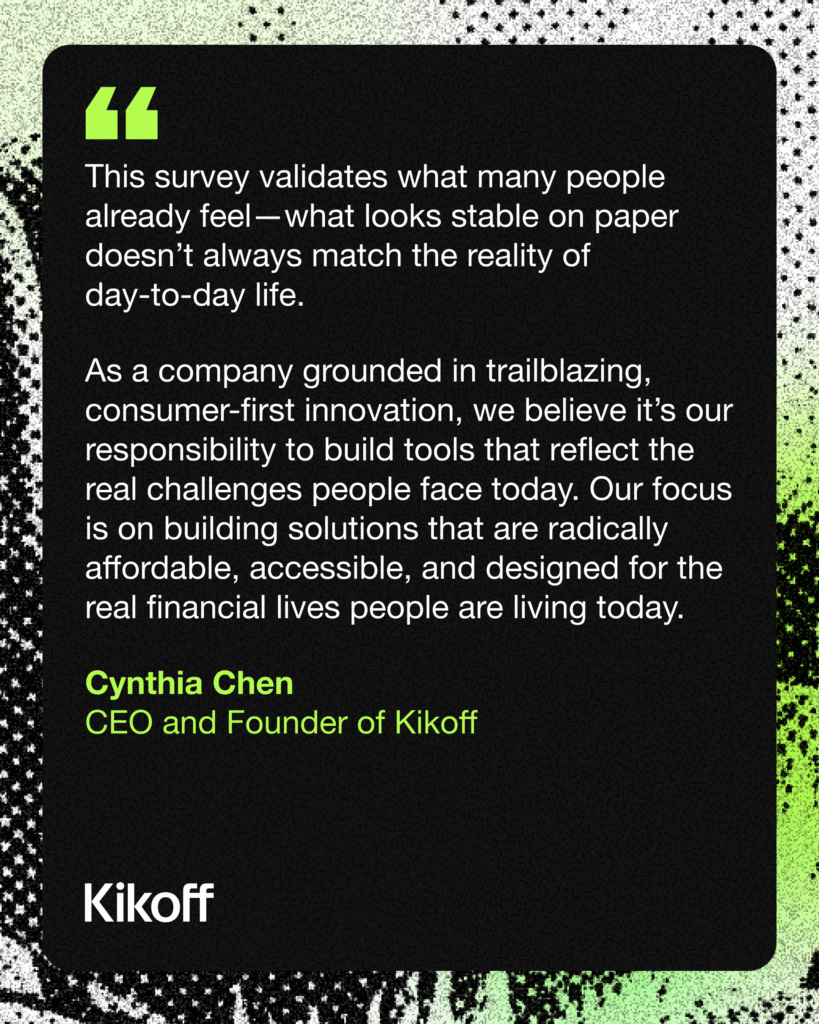
Data Reveals How Credit Anxiety, Institutional Distrust, and Financial Pressures are Reshaping Consumer Behavior
San Francisco, CA — July 22, 2025 — Kikoff, the credit-building platform used by over a million Americans, today released its Economic Trust Report, based on their nationally representative survey conducted by The Harris Poll among 2,083 U.S. adults. The findings expose a trust gap between reported macro-economic indicators and what Americans actually believe about their financial standing.
Consumers Are Losing Faith in Legacy Metrics

Traditional markers of financial health are losing relevance, and people are looking elsewhere for support.
- Nearly 2 in 5 (37%) say the way the U.S. government talks about the economy does not reflect their own financial reality.
- Less than a quarter (22%) of Americans trust the government for reliable financial insights.
- More Americans report placing trust in a financial advisor (43%), friends and family (41%) or fintech platforms (32%) than in the government (22%) for reliable financial insights.
Economic Indicators Suggest Stability but Consumers Feel Otherwise

Despite reports of stable FICO scores, consistently low unemployment rates and lowered recession risk, many Americans still feel financially strained.
- Over half of Americans (57%) say they feel financially strapped for cash even though the U.S. economy is not currently in a recession.
- 37% of Americans note personal finance as a source of anxiety and/or stress, with 35% citing inflation as their top financial stressor, followed by personal debt at 16%.
- 63% believe the U.S. economic system isn’t designed to benefit people like them.
Credit Behavior Signals Financial Strain

Findings suggest that broad economic growth is not relieving daily financial strain. Even high earners are turning to credit to stay afloat, and alternative credit products are gaining traction, filling perceived gaps in traditional offerings.
- Nearly 1 in 4 Americans who had an unexpected expense, such as medical bills or home and auto repairs, in the past year (24%) opened a new credit card to cover said expense.
- More than half of Americans (55%) don’t know the amount of their current credit card debt.
- Higher earners (Americans with an annual household income of $100k or more) are more likely (28%) than lower-income peers (16% of those with an annual household income of less than $50k) to say they have carried card balances past the first statement to cover unexpected expenses in the past 12 months.
- More than half of Americans (53%) say ‘Buy Now Pay Later’ options make them feel more in control of their finances than credit cards.
Credit Scores Remain a Barrier for Many

- 20% of Americans say they have been denied credit or housing based on their credit score in the last year.
- Nearly a quarter of Americans (23%) say they delayed major life events (marriage, home upgrades, starting a family) in the last year to protect their credit score.
- An overwhelming majority of Americans (71%) believe credit access shouldn't rest solely on a three-digit credit score.

“This survey validates what many people already feel—what looks stable on paper doesn’t always match the reality of day-to-day life,” said Cynthia Chen, founder and CEO of Kikoff. “As a company grounded in trailblazing, consumer-first innovation, we believe it’s our responsibility to build tools that reflect the real challenges people face today. Our focus is on building solutions that are radically affordable, accessible, and designed for the real financial lives people are living today.”
To learn more about Kikoff’s suite of financial tools, visit https://kikoff.com/.
Survey Method:
This survey was conducted online within the United States by The Harris Poll on behalf of Kikoff from June 20-24, 2025 among 2,083 U.S. adults ages 18 and older. The sampling precision of Harris online polls is measured by using a Bayesian credible interval. For this study, the sample data is accurate to within +/- 2.5 percentage points using a 95% confidence level. This credible interval will be wider among subsets of the surveyed population of interest. For complete survey methodology, including weighting variables and subgroup sample sizes, please contact press@kikoff.com.


















